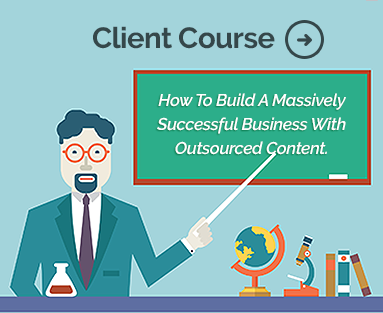Are you tired of staring at a blank screen and struggling to come up with fresh and engaging content ideas? Look no further! This comprehensive guide will show you how to fuel your content engine and become a masterful content planner.
Say goodbye to writer’s block and hello to endless inspiration as we break down the key steps to creating killer content that will keep your audience coming back for more. Let’s get started!
Why Is Content Planning Important?
One of the main reasons why content planning is important is because it helps you stay focused on your goals. By setting clear objectives for your content, you can create a roadmap that guides all aspects of your content creation process. This ensures that every piece of content you produce serves a purpose in achieving those goals.
Moreover, having a content writer with a well-thought-out plan allows you to maintain consistency across all your channels and platforms. From social media posts to blog articles and email newsletters, having a consistent message and tone helps build brand identity and strengthens customer relationships.
A comprehensive content plan also considers your target audience’s needs and preferences. By conducting thorough research on their interests, pain points, and online behavior, you can tailor your content to meet their needs effectively. This keeps them engaged and helps establish credibility and trust with potential customers.
Steps to Masterful Content Planning
Creating high-quality and engaging content is crucial for any successful business. However, coming up with fresh ideas and planning your content strategy can be daunting.
In this section, we’ll discuss the essential steps to masterful content planning that will fuel your content engine.
Understanding Your Audience and Goals
One way to understand your audience better is by creating buyer personas. These are fictional representations of your ideal customers based on research and data analysis. By identifying their pain points, motivations, goals, and preferences, you can effectively tailor your content to address their specific needs.
In addition to understanding your audience’s characteristics, knowing where they consume content is essential. Are they active on social media? Do they prefer reading blog posts or watching videos? Understanding which channels they use will help you distribute your content in the right places for maximum reach and engagement.
Developing a Content Strategy
A content strategy is essentially a roadmap that guides your content’s creation, publication, and distribution. It lays out the goals, target audience, types of content to be created, and the platforms on which it will be published. A well-developed content strategy can help you produce high-quality and relevant content that resonates with your audience and drives engagement.
Developing a comprehensive content strategy involves clearly defining goals, understanding your target audience, conducting a content audit, planning for different content types and distribution channels, creating a calendar for consistency, and tracking performance to continually improve the strategy.
Creating an Editorial Calendar
Creating an Editorial Calendar is essential in mastering content planning and keeping your content engine running smoothly. An editorial calendar is a strategic tool that helps you plan, organize, and schedule your content ahead of time. It serves as a roadmap to guide your content creation process and ensures that your content aligns with your overall marketing goals.
It’s essential to note that an editorial calendar should be flexible and adaptable. Keep room for adjustments and new ideas as they come up throughout the planning process. Also, remember to regularly review and update your editorial calendar to keep it relevant and aligned with your marketing goals.
Choosing the Right Formats and Channels for Your Content
Choosing the right formats and channels for your content is a crucial step in the content planning process. It determines how your audience will consume and engage with your content, ultimately impacting its reach and success.
Aside from format considerations, choosing the right channels is equally important as it determines where your target audience will distribute and see your content.
With so many platforms available today, such as social media networks (Facebook, Twitter), video sharing sites (YouTube, Vimeo), professional networking sites (LinkedIn), online communities (Reddit), forums (Quora), etc., it can be overwhelming to decide which ones are best suited for your brand.
Tools and Resources for Content Planning
Content planning is a critical aspect of successful content marketing. It involves creating a strategic approach to producing, publishing, and distributing valuable and relevant content to attract and retain a specific target audience. An effective content plan requires careful consideration of various factors such as audience demographics, content formats, distribution channels, and goals.
In this section, we will discuss some essential tools and resources that can fuel your content engine and enhance your overall content planning strategy.
Keyword Research Tools
Researching relevant keywords is an integral part of any successful content plan. Keyword research helps identify popular search terms related to your industry or niche that people use to find information online. Several keyword research tools are available, such as SEMrush, Google Keyword Planner, and Ahrefs, which give insight into search volume, competition level, trends, etc., helping you create highly targeted and SEO-friendly content.
Social Media Management Tools
With the ever-increasing influence of social media on consumer behavior, it is crucial to have a strong presence on different platforms. Social media management tools like Hootsuite or Buffer allow you to schedule posts in advance across multiple networks while providing analytics on engagement metrics such as likes, shares, or comments.
Content Idea Generators
Stuck for fresh ideas? No problem! Many online generators like Hubspot’s Blog Topic Generator, CoSchedule Headline Analyzer, or Portent’s Content Idea Generator can help generate creative and engaging content ideas based on your industry or keyword.
Audience Analytics Tools
Understanding your audience is key to producing content that resonates with them. Tools like Google Analytics, Facebook Insights, or Twitter Analytics provide detailed insights into audience demographics, interests, behavior, etc., helping you tailor your content strategy accordingly.
The Power of Masterful Content Planning
As we conclude our guide to masterful content planning, it is clear that having a solid strategy and organized plan is crucial for fueling your content engine. Remember to always consider your audience and goals, stay consistent, and regularly evaluate and adjust your plan as needed.
With these tactics in place, you will be well on your way to creating an impactful and successful content marketing strategy. Schedule a free consultation to hire a content writer for your business today!




Comments are closed.